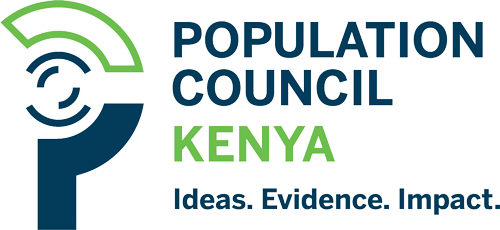In Africa's vast and diverse landscape, a powerful force has emerged—a force that transcends borders and ideologies. United by a common purpose to accelerate the HIV prevention agenda, forge connections between nations, and foster collaboration, the South to South Learning Network (SSLN) recently organised one of a kind event—the Pan-Prevention Workshop. Held in Cape Town, South Africa, this workshop brought together key and diverse stakeholders in an effort to harness existing knowledge and experiences to propel progress towards achieving HIV prevention targets.
As Kerry Mangold, SSLN Programme Director, aptly stated:
"The approach to learning and prevention is about how we leverage what we know to get to the targets."
This quote encapsulates the workshop's spirit, underscoring the significance of utilising available knowledge to drive meaningful advancements in HIV prevention.
The Pan-Prevention Workshop brought together a diverse group of key HIV prevention stakeholders, including Ministry of Health representatives, National AIDS Councils, donors, community networks, and implementing partners. These stakeholders, or Country Champions as we call them on the SSLN, represent 15African countries across East Africa, West and Central Africa, and Southern Africa. Their collective mission was to work towards achieving sustained epidemic control.
Dr. Thembisile Xulu (CEO of the South African National AIDS Council) highlighted the significance of such forums, saying:
"It is through forums like these that we learn about promising practices tried by our neighbours. The lessons learned and solutions lie within this very same group. Let's learn and take away tried and tested interventions back to our countries."
This reflection emphasises the importance of shared learning and collaboration among the workshop participants.
The workshop had the main objective of supporting countries to prioritise their national HIV prevention strategies, going beyond the traditional pillar-based approach defined in the Global Prevention Coalition2025 Road Map. Throughout the three-day event, over 170 Country Champions actively engaged in peer-led discussions, dynamic plenary sessions, and enlightening site visits. The primary focus of these interactions was to exchange and disseminate promising practices in HIV prevention programming, with an emphasis on sustainable government and community-led solutions.
Dr.Yogan Pillay (Director: HIV & TB Delivery at the Bill & Melinda Gates Foundation) emphasised the necessity for ongoing innovation in prevention by stating:
"We need far more innovations in prevention intervention."
This underscores the importance of continuous advancements in the field of HIV prevention.
The workshop served as a dynamic platform where minds met, experiences intertwined, and expertise flourished. Government officials brought their strategic vision and political will to drive change at the national level. Ministry of Health representatives shared their invaluable insights into ground-level realities and implementation strategies. National AIDS Councils brought their expertise in coordinating comprehensive HIV prevention efforts. Donors demonstrated their commitment for sustainable financing and an appetite to support innovative and impactful approaches. Community networks amplified the voices of the most affected populations, ensuring that their needs and perspectives were included in the discussions. Implementing partners shared evidence-based interventions and successful models for replication.
The power of collaboration and shared learning became evident as Country Champions explored new approaches to address the complex dynamics of HIV prevention. The workshop facilitated deep connections, nurtured collaborations, and fostered a sense of collective responsibility:
Mable Mweemba from Zambia (Chief Adolescent Health Officer, Ministry of Health, Zambia) emphasising the importance of community-driven solutions:
"Every challenge or problem that communities experience—the solutions lie within because they know how to navigate their lives,"
Site visits offered participants the opportunity to witness firsthand the impact of active prevention programmes, enabling them to gain real-time insights and invaluable experiences. These practical applications served as the foundation for designing and implementing effective prevention strategies in diverse contexts and exposing Country Champions to differentiated service delivery models.
As said by an Eswatini Country Champion:
“During the session on AGYW, I learnt that we can have other models for HIV programming and maximising uptake of PrEP by AGYW."
Country Champions also participants had the opportunity to hear real-time testimonies from beneficiaries of active prevention programmes. These practical experiences and the exchange of insights and promising practices during the workshop created a dynamic learning environment, enabling Country Champions to apply their learnings and shape effective prevention strategies that address the specific needs of diverse populations and contexts.
The Pan-Prevention Workshop transcended the definition of a mere event.
It stood as a significant milestone in the ongoing journey of the SSLN Champions. This transformative learning experience served as a powerful symbol of Africa's diverse nations' unwavering commitment to overcome the challenges posed by the HIV epidemic and establish a sustainable framework for epidemic control. By showcasing the remarkable power of collaboration, innovation, and community engagement, the workshop demonstrated how these elements can drive profound and meaningful change.


















